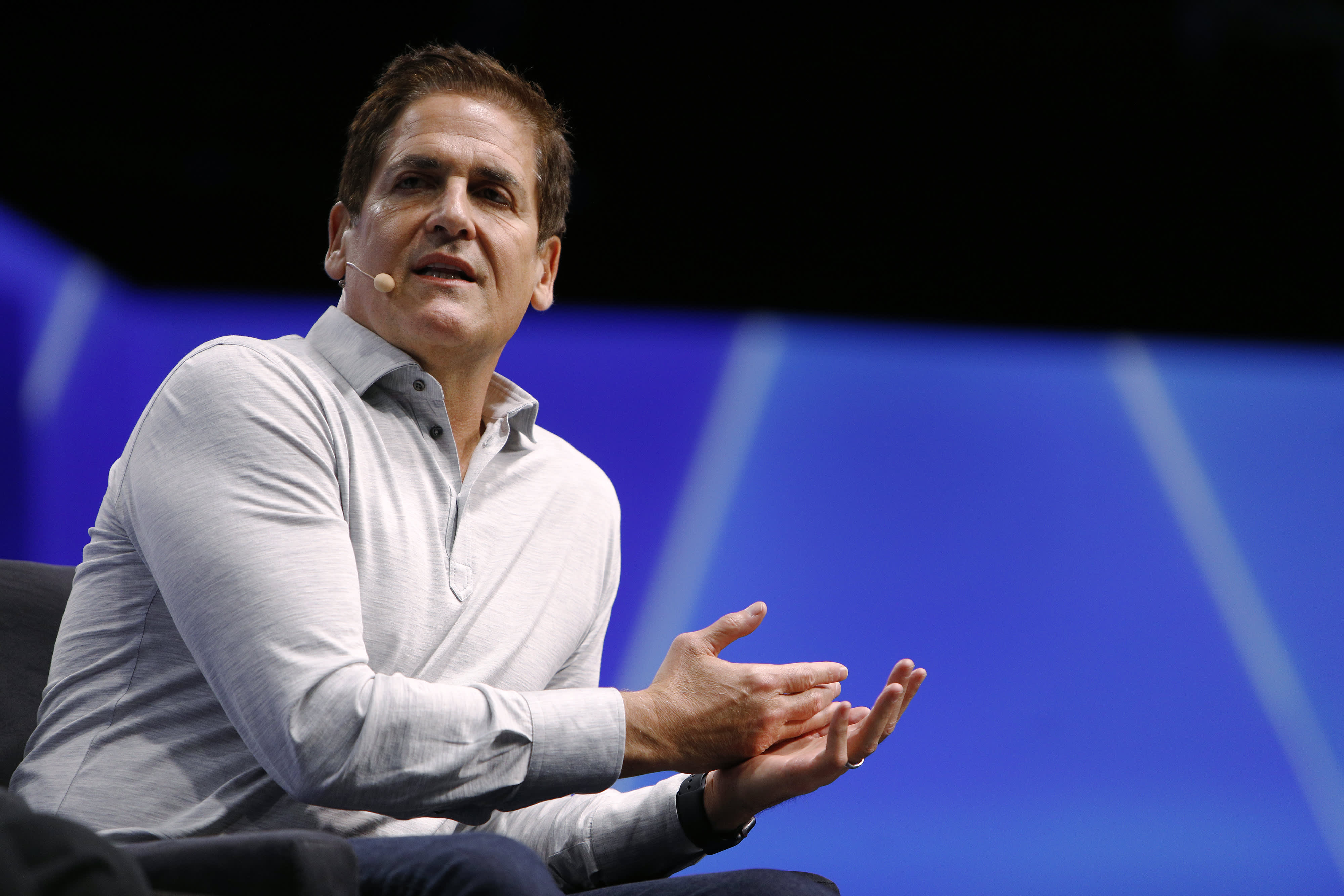With around 13 million Americans unemployed and thousands of businesses permanently closed across the U.S., experts warn that more stimulus will be needed for economic recovery amid the ongoing pandemic.
However, Congress is at an impasse, and it looks unlikely that a deal on another stimulus package will happen any time soon. But “we need it as much now as we did back then,” at the start of the pandemic, Mark Cuban, self-made billionaire, investor on ABC’s “Shark Tank” and owner of the Dallas Mavericks, tells CNBC Make It.
Cuban says there are “two economies,” or two sets of realities, right now: One for those able to stay afloat and one for those unable to. ”Those without [help] are struggling badly,” he says. “We need to get them help.”
To provide that help, Cuban supports more stimulus checks being dispersed, he says.
Cuban says that all American households, no matter their income level, should receive a $1,000 stimulus check every two weeks for the next two months. He proposed this same idea in May and says “I still believe in doing it the exact same way” today.
Additionally, families would have to spend each check within 10 days, or they would lose the money, Cuban says. He believes this “use it or lose it approach” would be beneficial because it would promote spending, which would help businesses stay open and stimulate the economy.
“I don’t care what they spend it on,” Cuban told KNX 1070 News Radio in May. “It could be candy, it could be rent, it could be their mortgage, it could be anything they deem necessary or that they want.”
Without mandating the money be spent within 10 days of receipt, Cuban believes many Americans will save it. “People are uncertain about their future, so rather than spending, they save,” he says. He has a point: Many Americans have been saving more amid the pandemic than ever. In April, the personal savings rate hit a record high, according to the U.S. Bureau of Economic Analysis.
With Cuban’s plan, “the whole goal is to get that money every two weeks into the economy,” he says. “Once businesses start having demand, even if they’re closed and working online, then there is a reason for them to be able to bring back employees and retain those employees if demand is sustained.”
Cuban acknowledges this plan would be costly. “There is certainly a lot of risk in this use it or lose it approach,” he said in a tweet in May. “But it will allow for demand for non-essential products and services to increase, hopefully keeping most businesses alive.”
It will allow for demand for non-essential products and services to increase, hopefully keeping most businesses alive.
Mark Cuban
investor on ABC’s “Shark Tank”
However, Cuban’s plan would work better if it specifically targeted those most in need, Chuck Marr, senior director of federal tax policy at the Center on Budget and Policy Priorities, tells CNBC Make It.
“What’s good about [Cuban’s plan], and what’s important, is he reflects the urgency of the situation,” Marr says. ”But I think you target money first for people that are hurting. People who are hurting and don’t have other income, they’re going to spend. I think if you did stimulus payments, they need to be targeted by income.”
Affluent Americans and those who can work from home are able to save more, Marr says. Giving them extra money right now won’t necessarily encourage them to spend more.
Marr would also do away with the “use it or lose it” approach pitched by Cuban, he says. “I don’t think the ‘spend it now’ is workable,” Marr explains. “The government could not keep track of that.”
All in all, it does make sense to support additional stimulus payments, on top of “substantial unemployment and nutrition support,” Marr says. “That combination of unemployment insurance and the stimulus checks in the spring and summer was very effective,” he says. “It kept support for low- and middle-income people.”
Where things stand now
To support the economy and struggling Americans amid the Covid-19 pandemic, Congress passed a record $2 trillion coronavirus aid package known as the Coronavirus Aid, Relief, and Economic Security, or CARES, Act in March.
The legislation provided many Americans with a much-need boost, including a round of stimulus checks, enhanced unemployment benefits and insurance, and forgivable loans for small business owners through the Paycheck Protection Program, or PPP.
However, since many of the CARES Act provisions expired in July, that support is dwindling.
But Congress has yet to agree on a second stimulus package. Earlier this month, Senate Republicans failed to advance their “skinny” coronavirus relief bill, as Congressional Democrats say the bill did not provide enough relief for Americans. In a hearing on Tuesday, House Democrats reaffirmed their commitment to a deal that includes a second round of $1,200 stimulus checks.
Some experts say that the death of Supreme Court justice Ruth Bader Ginsburg and the debate over filling the now vacant seat will make an agreement nearly impossible going forward.
“What we’re seeing now [in Congress], is there is somewhat of a timeout, but there is no timeout for hunger,” Marr says. “There is urgency [for a stimulus deal]. Congress needs to step up.”
Disclosure: CNBC owns the exclusive off-network cable rights to “Shark Tank.”
Check out: We analyzed 111 rewards cards, and the best one could earn you $2,000 over 5 years
Don’t miss:
